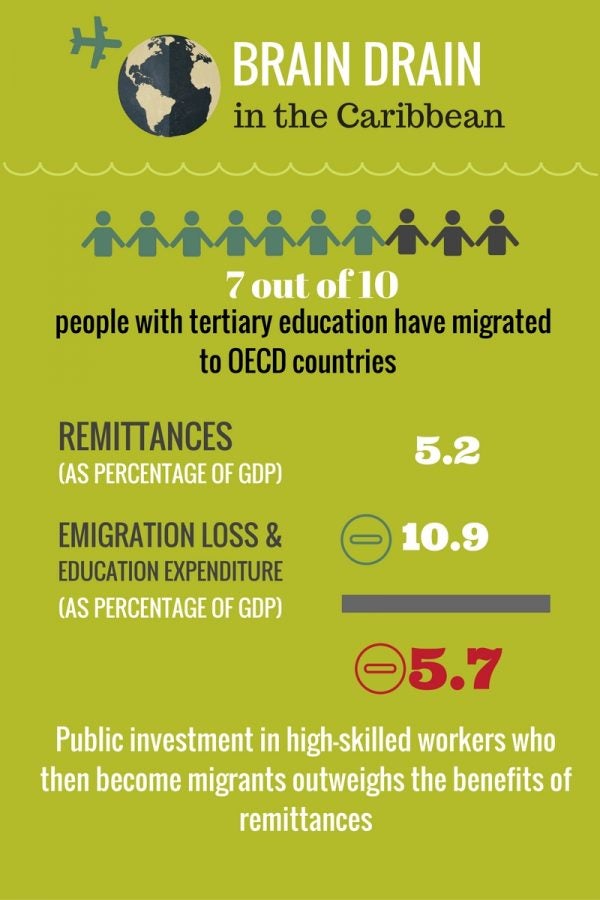Caribbean countries invest a lot of economic resources in higher education. The rationale for investing public funds in education follows from the public and private expected returns: boost country-level growth and welfare, and increase productivity and earnings. However, if beneficiaries of public education migrate, these public and private returns are received by the host country.
Mishra (2006) shows that although the Caribbean is the world’s largest recipient of remittances, losses from public investments in education resulting from migration of high-skilled workers outweigh the benefits of remittances. The infographic summarizes these findings, showing that, for the Caribbean, the average emigration loss accounts for 10.9 percent of the gross domestic product, whereas incoming remittances account for 5.2 percent. Therefore, the costs associated with investments in the education of students who then become migrants outweighs the benefits from remittances sent by international workers back to the Caribbean.[1]
Besides investing in developing high-skilled workers, Caribbean countries must also find ways to attract, maintain, and foster these workers’ talent at their original country level. Also, further research is needed to examine if Caribbean countries are investing in the ‘right’ skills.
[1] From a forthcoming report by the Caribbean Economic Team titled, “An Engine of Growth? The Caribbean Private Sector Needs More Than an Oil Change,” by Inder Ruprah and Ricardo Sierra


Leave a Reply